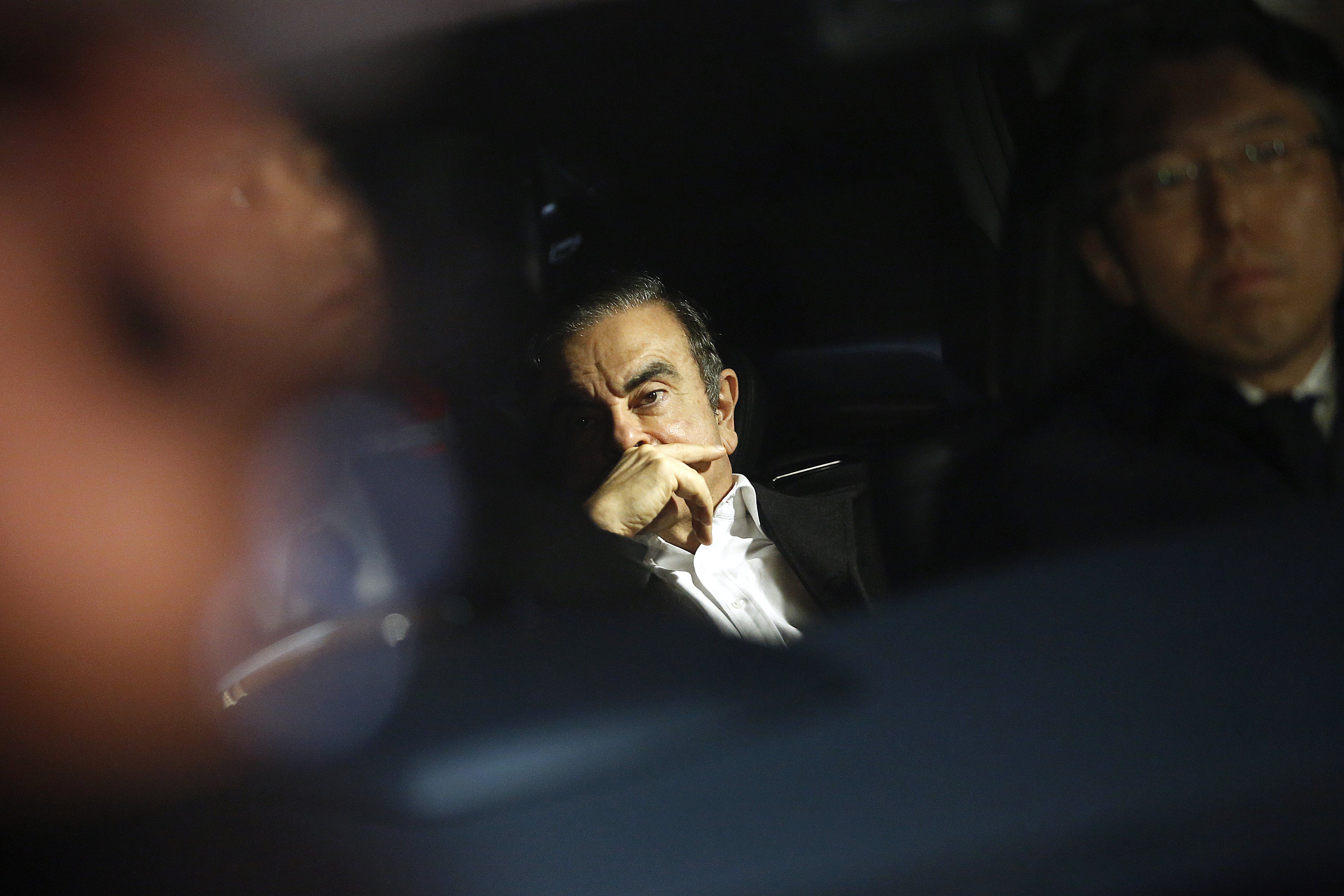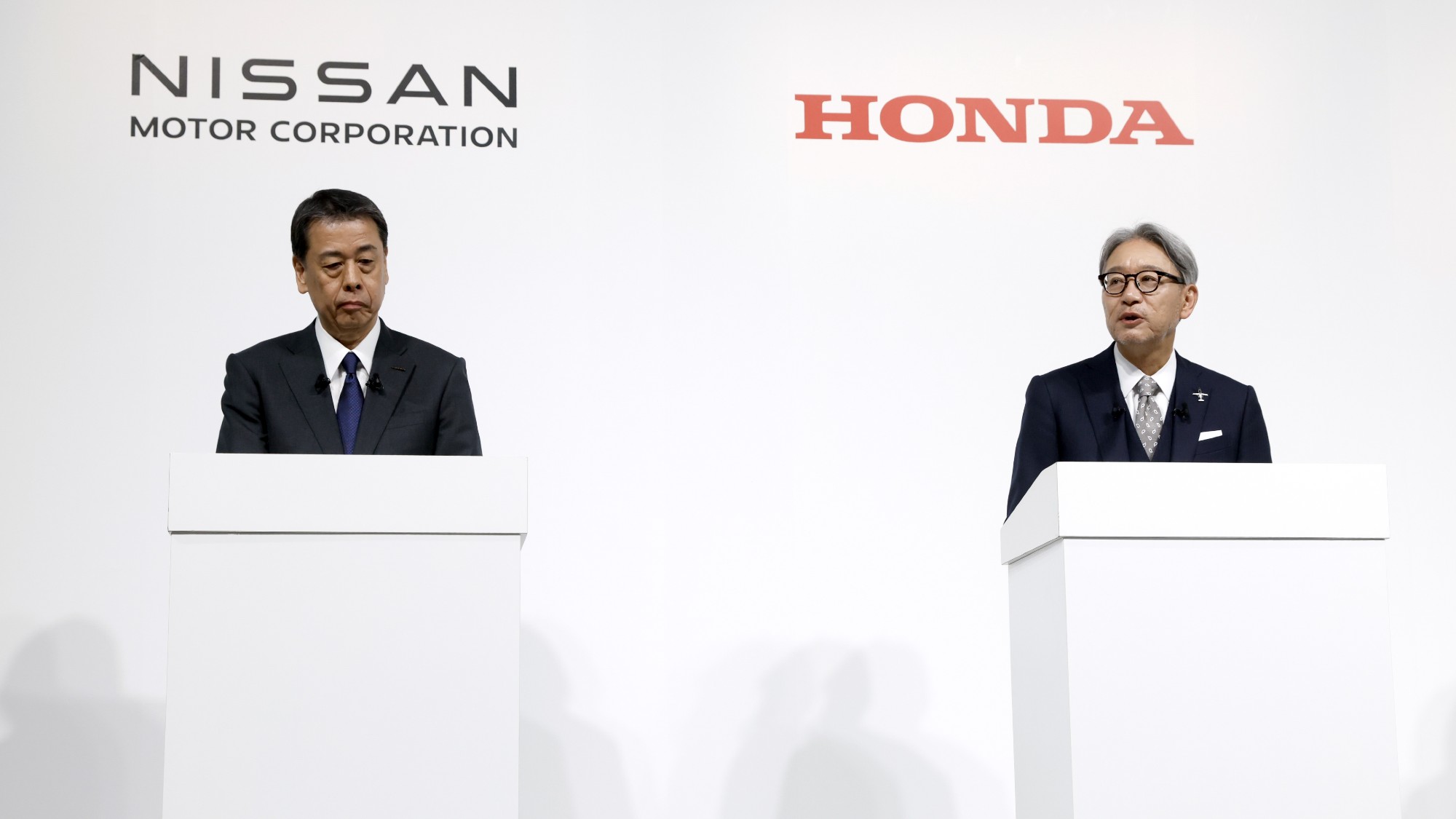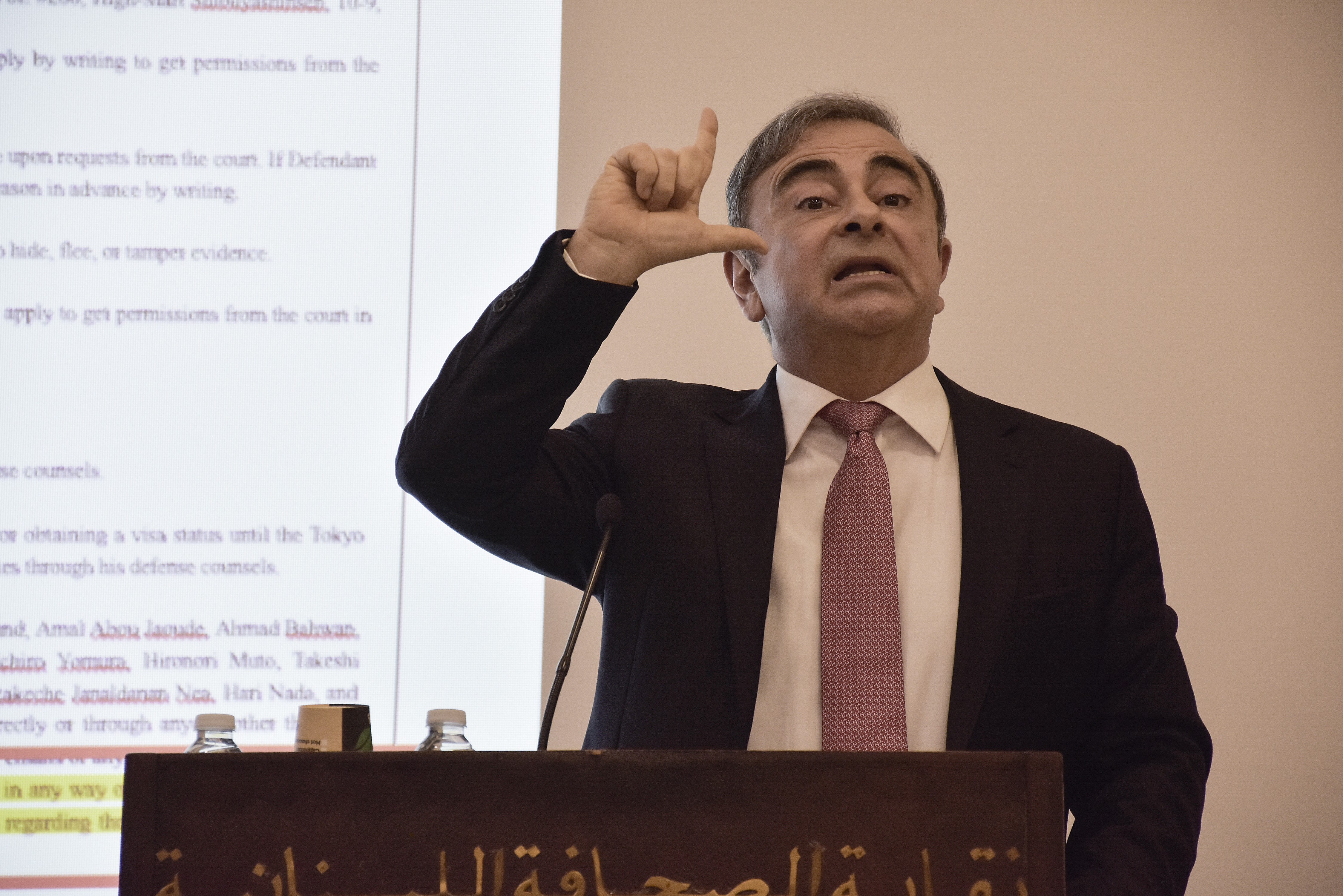Why did Carlos Ghosn flee Japan?
The businessman shocked the world by escaping, but says he stood no chance of a fair trial in Japan, where 99% of defendants are convicted


A free daily email with the biggest news stories of the day – and the best features from TheWeek.com
You are now subscribed
Your newsletter sign-up was successful
Carlos Ghosn, the former Nissan CEO who was awaiting trial in Japan for financial misconduct, has become an international fugitive after a daring escape to Lebanon under the noses of Japanese authorities.
Ghosn, a Brazilian-born French and Lebanese businessman, is largely credited with saving Nissan from bankruptcy and turning it into a thriving modern car maker since joining in 1999 from Renault.
His success earned him huge respect and status in Japan, despite being the company’s first ever non-Japanese CEO. However, he was arrested in November 2018, accused of underreporting his salary over five years by £63.6 million. Ghosn denies all wrongdoing.
The Week
Escape your echo chamber. Get the facts behind the news, plus analysis from multiple perspectives.

Sign up for The Week's Free Newsletters
From our morning news briefing to a weekly Good News Newsletter, get the best of The Week delivered directly to your inbox.
From our morning news briefing to a weekly Good News Newsletter, get the best of The Week delivered directly to your inbox.
Since his arrest, Ghosn has developed into one of Japan’s most well-known criminal suspects, and posted bail in April to live in his luxurious Tokyo residence under surveillance, where he was banned from using the internet, making legal preparations to face trial.
It now seems those preparations were a sham.
As news of his arrival in Lebanon emerged, Ghosn released a statement saying that he had “escaped injustice and political persecution,” and that he would no longer be “held hostage by a rigged Japanese justice system where guilt is presumed, discrimination is rampant, and basic human rights are denied.”
Ghosn had been required to hand over all three of his passports as a condition of bail, but at some point just before New Year’s Day - Japan’s most important holiday where government agencies are relatively understaffed - he evaded the camera installed outside his house and then, somehow, Japanese border police.
A free daily email with the biggest news stories of the day – and the best features from TheWeek.com
The Telegraph describes a “Houdini-like escape [that] had him sneaking out of his home in Tokyo - which had been under 24-hour police surveillance - with a group of ex-special forces soldiers posing as a musical band.”
“The escape appeared to have been planned in Lebanon,” reports The New York Times, citing a source saying that “a lawyer for Mr. Ghosn in Beirut played a lead role putting the plan together and acted as the go-between with the Lebanese government.”
The news has prompted fury, indignation, and a sense of wounded pride in Japan. “Running away is a cowardly act that mocks Japan’s justice system,” said Japanese newspaper Yomiuri Shimbun. Ghosn has “lost the opportunity to prove his innocence and vindicate his honour,” the paper added
“I want to ask him, ‘How could you do this to us?’” said Junichiro Hironaka, Ghosn’s lawyer in Tokyo, to a throng of reporters outside his office on Tuesday. “We were completely caught by surprise. I am dumbfounded.”
–––––––––––––––––––––––––––––––For a round-up of the most important business stories and tips for the week’s best shares - try The Week magazine. Get your first six issues free–––––––––––––––––––––––––––––––
There is great sympathy for Ghosn in his native Lebanon, and it remains to be seen what level of diplomatic fallout there will be with Japan.
Ghosn’s case has shone a light on what critics call Japan’s rigged justice system, in which more than 99% of defendants are convicted.
What’s more, “Foreign business executives in Japan have long felt Ghosn was treated harshly as a foreigner,” reports The Washington Post, “while Japanese business executives routinely escape prosecution for worse offences.”
“The Ghosn saga has been a fiasco from its dubious start,” concludes The Wall Street Journal. “The best way justice could be served now would be for the truth about the accusations to emerge; for Mr. Ghosn to get his reputation back if the evidence is as weak as it seems; and for Japan to reform its justice system and corporate governance so they are more appropriate for a modern free-market economy.”
William Gritten is a London-born, New York-based strategist and writer focusing on politics and international affairs.
-
 Ex-South Korean leader gets life sentence for insurrection
Ex-South Korean leader gets life sentence for insurrectionSpeed Read South Korean President Yoon Suk Yeol was sentenced to life in prison over his declaration of martial law in 2024
-
 At least 8 dead in California’s deadliest avalanche
At least 8 dead in California’s deadliest avalancheSpeed Read The avalanche near Lake Tahoe was the deadliest in modern California history and the worst in the US since 1981
-
 Political cartoons for February 19
Political cartoons for February 19Cartoons Thursday’s political cartoons include a suspicious package, a piece of the cake, and more
-
 What went wrong at Nissan?
What went wrong at Nissan?In the Spotlight And will a merger with Honda make the difference?
-
 Carlos Ghosn defends himself in public
Carlos Ghosn defends himself in publicIn Depth The world has been waiting to hear from the fugitive businessman, and on a stormy night in Beirut, he delivered his impassioned defence
-
 Nissan cuts 12,500 jobs worldwide: are British workers affected?
Nissan cuts 12,500 jobs worldwide: are British workers affected?In Depth Japanese carmaker is battling for survival as global profits plunge
